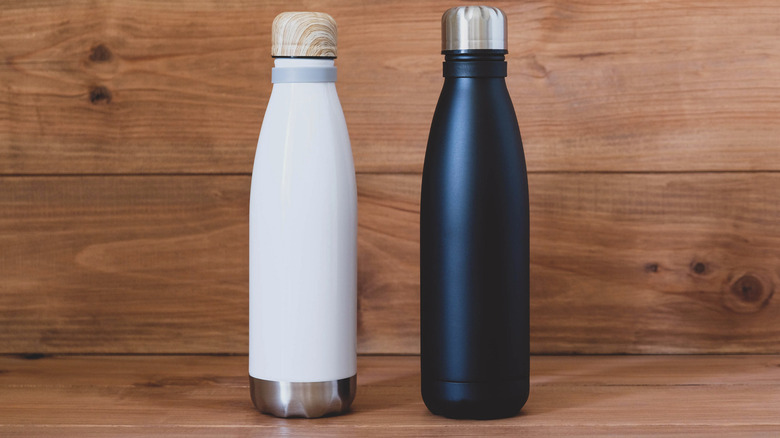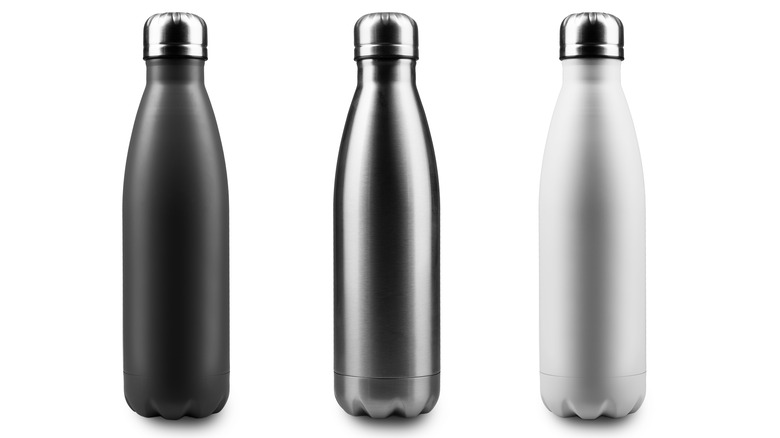Is It Safe To Drink From Stainless Steel?
Stainless steel can make a great water bottle choice. It holds drinks of both hot and cold temperatures easily, it's easy to clean and often dishwasher safe, not to mention that it'll save you money and it's better for the environment than drinking plastic bottled waters. Stainless steel is also a healthier choice than plastic, since as Consumer Reports notes, plastics are problematic health-wise, and some may even leach chemicals into food and drinks.
Stainless steel is also superior to aluminum, at least for water bottles; Aluminum doesn't handle heat well, and also reacts poorly to acidity, which is why aluminum water bottles are made with a protective liner. But these liners may contain chemicals like Bisphenol-A, which is associated with harmful effects in plastics, according to WebMD.
High-quality stainless steel is a better choice than either plastic or aluminum, but it's important to note that some lower quality stainless steel water bottles have had their own problems with leaching chemicals. In 2017, website Natural Baby Mama hired a lead-poisoning prevention advocate to test some stainless steel water bottles, and discovered several contained lead solder dots on the bottom. These dots in some instances were scratched off, putting consumers at risk of lead poisoning.
What to look for in stainless steel water bottles
So, how do you know if a stainless steel water bottle is really safe to drink from? Flaske, a maker of environmentally friendly products like water bottles, recommends buying only those made from high-quality 18/8 stainless steel.
What is 18/8, and why is it so safe? According to Corrosionpedia, 18/8 (also known as 304 grade) denotes stainless steel made using a composition of 18% chromium, and 8% nickel. This form of stainless steel is durable, easy to clean, and is resistant to oxidation and corrosion (like from acidic liquids).
As Flaske notes, scratches, dents or aging won't transform 18/8 stainless steel into a material that leaches chemicals into water. Further, these water bottles require no liner, unlike aluminum bottles, ensuring the taste of the water remains free of "bad tastes." Iron Flask, another maker of insulated stainless steel water bottles, echoes this 18/8 recommendation, saying that among the many reasons to go with 18/8 stainless steel, safety is No. 1.

